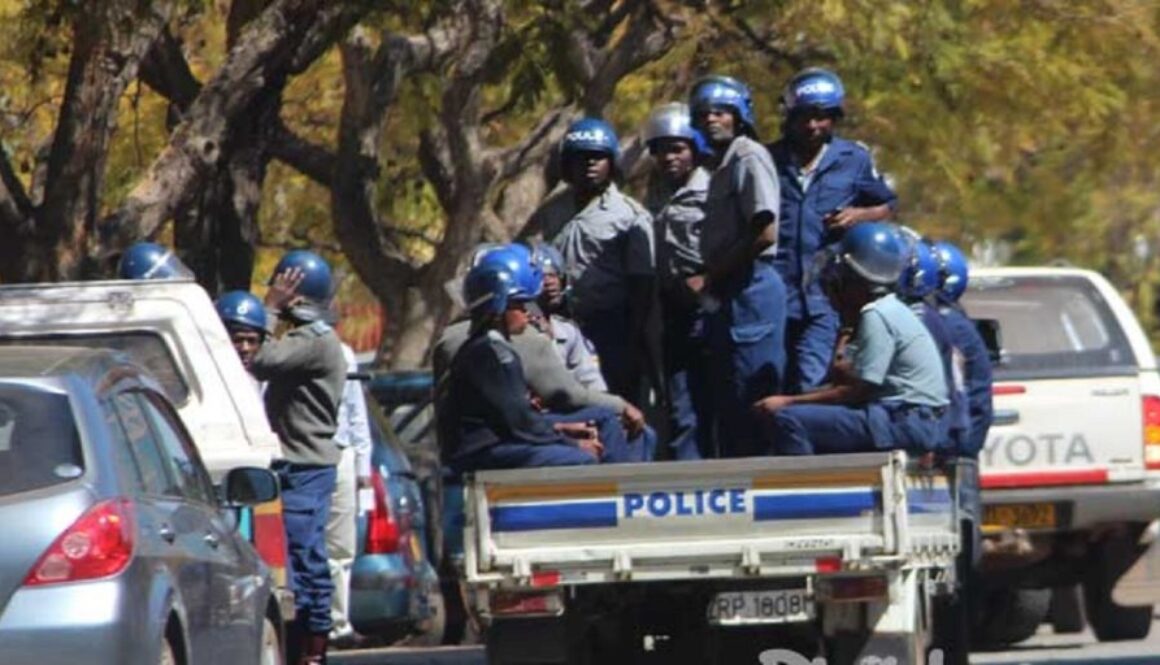
blog



Courts’ Exclusive Judicial Turf Or Master Of The High Court’s Domain: Determination Of The Status Of A Person As A Surviving Spouse Or Otherwise For Purpose Of Entitlement To Intestate Inheritance In An Unregistered Customary Law Union In Zimbabwe.
Introduction
The determination of the status of a person as a surviving spouse in an unregistered customary law union in Zimbabwe is a very important decision which operates as a precursor or condition precedent to any legal claim for intestate inheritance from the applicable deceased estate by the concerned person. This issue has always been lying unresolved but it was recently brought to the fore by a related newspaper story that was reported in the Herald edition of 17 April 20172 entitled, “ no lobola, no inheritance…ruling brings closure to surviving spouse debate.” The classification of a person as a surviving spouse of a deceased person is one of the gateway to acquiring inheritance from the deceased person’s estate, especially where the deceased died without leaving behind a valid will (intestate). In some cases, the question of whether or not one is a surviving spouse or even a beneficiary of a given deceased is a highly contested terrain involving complex material disputes of fact which cannot be resolved amicably between the deceased’s family members and other interested parties due to an interplay of a myriad of factors that includes but not limited to greedy, polarisation and settling of personal scores, thereby warranting the intervention a neutral third party to adjudicate . The crux of this paper is to provide an answer to the pricking question of who between the Courts and the Master of the High Court is reposed with the jurisdiction to determine the status of a person as a surviving spouse or otherwise in an unregistered customary law union in Zimbabwe.
Legal Confines Or Boundaries Of The Master’s Jurisdiction In A Customary Law Estate Dispute Among Beneficiaries Regarding Whether Or Not Customary Law Applied To The Deceased Person.
The Master of the High Court’s (hereinafter referred to as ‘’the Master”) jurisdiction in a customary law estate dispute among beneficiaries pursuant to section 68G of the Act is clearly marked and circumscribed within the four corners of the applicable legislation and not open ended. Jurisdiction refers to the legal capacity and power to determine a matter. In terms of the law, the Master’s jurisdiction is only restricted to deciding a dispute among beneficiaries as to whether or not customary law applied to the deceased person , nothing more nothing less. The peremptory provisions of the Administration of Estates Act7(hereinafter referred to as the “Act”) are very
instructive in this regard as follows:
“ Where there is a dispute among the beneficiaries of an estate as to whether or not customary
law applied to the deceased person for purposes of this Part, the question shall be referred to the
Master, who shall determine it in the speediest and least expensive manner consistent with real
and substantial justice.” (emphasis added by underlining).
Thus, the statutory jurisdiction of the Master specifically apply to and is limited to a determination of a dispute among the beneficiaries of an estate as to whether or not customary law applied to the deceased person based on the legal guidelines embedded in the Act as follows:
“ Section 3 of the Customary Law and Local Courts Act ( Chapter 7:05) shall apply in determining
the question whether or not customary law applied to a deceased person for the purpose of this
Part
Provided that it shall be presumed, unless the contrary is shown, that-
(a) customary law applied to a person, who at the time of his death, was married in accordance with customary law; and
(b) the general law of Zimbabwe9 applied to the person who, at the time of his death, was married in accordance with the Marriage Act (Chapter 5:11) or the law of foreign country, even he was also married to the same person under customary law.”
The legal role of the Master of the High Court of Zimbabwe as the upper guardian
of the minor child(ren) in Zimbabwe in comparison with other jurisdictions
By Caleb Mucheche LLM Commercial Law (South Africa), LLM Labour Law
(Zambia), LLB Hons (UZ): Head Partner at Caleb Mucheche and Partners Law
Chambers, Legal Practitioners: advocatemucheche@gmail.com
Introduction
Guardianship and Custody are important legal concepts when dealing with the affairs of minor children. Guardianship and Custody are important concepts in law with regards to minor children. These concepts are closely intertwined, and as such, often confused by many. Custody refers to the physical control and primary responsibility of well-being and daily care that a person has over a minor child, whilst Guardianship encompasses the full rights over the affairs of a minor including dealing with health, education needs, financial security or any welfare needs. The primary focus of this paper is on guardianship, and particularly the roles of the Master of the High Court as the upper guardian of the minor child in Zimbabwe amid the existing inheritance and estate laws in Zimbabwe.
Zimbabwean Legal Framework
A clarity on who is a minor is, crucial in this paper to lay a good foundation on who the courts of law through the office of the Master of the High Court, protects. A minor in terms of our law any person under the age of 18. The Constitution of Zimbabwe in terms of section 81 (2) provides that, “A child’s best interests are paramount in every matter concerning the child”. The guiding principle in all matters involving a child, is the promotion of the child’s best interest at all times. In Zimbabwe, the Guardianship of Minors Act [Chapter 5:08] regulates the law regarding minors, in accordance with the provisions of the Constitution of Zimbabwe.
Guardianship in its widest sense connotes custody and embraces the care and control of the minor’s person as well as the administration of his property and business affairs. There are instances where custody and guardianship are separated; the custodian parent has the care and control of the minor’s person, while the guardian parent administers his/her property and business affairs (guardianship) in the narrower sense.
Further, the concept of guardianship and sole guardianship are two different issues. That is why they are governed by different sections under the Guardianship of Minors Act [Chapter 5:08]. Guardianship per se is the paramount right exercised by the father of a child born inside wedlock in terms of common law and this is referred to as guardianship simpliciter. This right is subject to section 3 of the Act and the power of the court as the upper guardian of children.
In terms of section 3 of the Guardianship of Minors Act [Chapter 5:08], a father whose guardianship simpliciter has not been challenged can exercise his rights in consultation with the mother of the child. The consultation duty imposed on the father by the law equally applies to parties who both married and divorced. Situations may arise where parents may disagree on what is best for the child, the Act is clear and it provides as follows,
not all parents are equipped to know, how to act in the best interests of their minor children. Section 19 of the Constitution prescribes that in all matters involving minor children their best interests are paramount. Whatever, is done if it affects children must always be done to ensure that the children are protected and that they enjoy the rights accorded them as children in the Constitution.
In all actions concerning children, whether undertaken by public or private social welfare institutions, courts of law, administrative authorities or legislative bodies, the best interests of the child shall be a primary consideration. In all actions concerning the child undertaken by any person or authority the best interests of the child shall be the primary consideration. A child’s best interests are of paramount importance in every matter concerning the child. In all actions concerning the care, protection and well-being of a child the standard that the best interest of the child is of paramount importance, must be applied. Courts play the role of a guardian angel in promoting and protecting the interests of children read more…
LABOUR LAW DISPUTE RESOLUTION IN ZIMBABWE AND THE LAW: THE CONCEPT OF FAIRNESS IN ADJUDICATION OF LABOUR DISPUTES IN ZIMBABWE
By Caleb Mucheche
INTRODUCTION
Dispute resolution is a system of resolving disputes which covers both formal and informal methods. The law mainly regulates formal dispute resolution systems. According to the Oxford Dictionary, fairness is the impartial and just treatment or behaviour without favoritism or discrimination. The principle of fairness may be described as the thread that runs through labour law in general and labour dispute resolution system in particular. Fairness constitutes the heart and soul of justice. One of the chief characteristics of good law is fairness. In labour matters, fairness is anchored on a hybrid of procedural and substantive fairness. Procedural fairness is the barometer or yardstick to measure proper and lawful compliance with a procedure to arrive at a decision. Substantive fairness deals with the legal correctness of a decision based on the facts and merits of a given case. This paper2 deals with a critical legal analysis of the application of the principle of fairness to labour cases in Zimbabwe. In labour matters, from the side of employees, fairness is rooted in equity and social justice as the foundation and chief cornerstone of labour law anchored on section 2A of the Labour Act.
LABOUR DISPUTE RESOLUTION SYSTEMS BY LABOUR OFFICERS, MAGISTRATES COURT, LABOUR COURT, HIGH COURT, SUPREME COURT AND CONSTITUTIONAL COURT : EXCLUSIVE FIRST INSTANCE JURISDICTION OF LABOUR OFFICERS AND LABOUR COURT LABOUR MATTERS AS CONFIRMED AND ENDORSED BY THE SUPREME COURT OF ZIMBABWE
The Supreme Court of Zimbabwe, as the final appellate court for all matters other than constitutional matters where the Constitutional Court has the final say, authoritatively solved once and for all the old age tug of war, perennial confusion and several previous conflicting judgments3 about first instance/first bite jurisdiction in labour matters pitting various players like labour officers, Labour Court and High Court. There are legal situations where other dispute resolution systems like Magistrates Court, Labour Court and High Court also exercise secondary jurisdiction in labour matters with regard to confirmation of draft rulings as well as registration of draft rulings. Access to justice for resolution of any general or universal civil dispute like a labour dispute via a court or tribunal established by law is at the heart and soul of section 69 of the Constitution of Zimbabwe; Right to a fair hearing provisions and more particularly subsection (2) which elaborately provides as follows:‘’in the determination of civil rights and obligations, every person has a right to a fair, speedy and public hearing within a reasonable time before an independent and impartial court, tribunal or other forum established by law.’’
The pinnacle floodgate of access to justice is section 69(3) of the Constitution of Zimbabwe, “Every person has the right of access to the courts, or to some other tribunal or forum established by law for the resolution of any dispute.”
It is now clear like tropical sunlight that under the prevailing or current labour legislative framework in Zimbabwe, labour officers enjoy sole primary or first instance jurisdiction in the bulk of categorized labour matters and such jurisdiction cannot be ousted or taken away by the High Court or any other court of law or tribunal. Also there are some labour matters where first instance jurisdiction is reposed in the Labour Court by the legislature and not labour officers, especially exercise of review powers in labour matters.4 This position was explicitly and instructively enunciated and underscored by the Supreme Court in the case of Stanley Nhari v Robert Gabriel Mugabe and Others SC 161/20 at pages1, 2 and 20 as follows:
“This is an appeal against the judgment of the High Court upholding the special plea by the respondents that the High Court did not have jurisdiction to determine issues of employment and labour law. At the centre of the dispute between the parties, both in the court a quo and before this Court, is the question whether the High Court, which now enjoys original jurisdiction over all civil and criminal matters throughout Zimbabwe pursuant to s 171 of the 2013 Constitution, has jurisdiction to determine all matters including issues of labour and employment. Having carefully considered all the constitutional provisions that have a bearing on this matter, as well as case law authority, I am in no doubt that the powers of the High Court are not unbounded and that in the sphere of labour and employment law, the court does not have jurisdiction to determine such matters in the first instance.
[46] Whether the High Court has jurisdiction in all matters including matters of labour and employment has been a subject of conflicting decisions of the High Court. Until such time as this Court were to make a definitive pronouncement on the matter, parties to litigation were at liberty to cite cases on both sides of the divide that supported their respective positions on the matter. It seems to me that, the circumstances, each party should bear its own costs, both in the court a quo and this Court.[47] On a careful interpretation of the Constitution, it is clear that the High Court does not, in fact, have jurisdiction over all civil and criminal cases in Zimbabwe. The general jurisdiction of the High Court is restricted by the very Constitution itself which has created specialized courts to handle specific areas of the law. The High Court has no jurisdiction to determine unfair labour practices which, in terms of the Labour Act, should more properly be handled by labour officers appointed in terms of that Act.” see also Chingombe & Anor v City of Harare and Ors SC 177/20.
DUTY OF A LABOUR OFFICER TO CORRECTLY RECORD FACTS OF A LABOUR DISPUTE, DO PROPER DIAGNOSIS OR PROGNOSIS AND APPLY THE CORRECT LEGAL PRESCRIPTION
Labour officers deal with both factual and legal issues in relation to disputes of interest and disputes of rights referred to them in terms of section 93 of the Labour Act. It is important for a labour officer dealing with a dispute to get the facts right and record them correctly. Also, it is equally important for a labour officer to apply the correct law to the facts of a dispute. Thus, there is a need for a labour officer to do a correct diagnosis or prognosis of the labour dispute and thereafter give a correct legal prescription or solution befitting the problem at hand. A labour officer doing adjudication or preparing a draft ruling is a trier of fact and applies the law to the given facts as well. At the end of the day, each case will depend on its own facts and merits.
SOME BIBLICAL DIMENSIONS TO THE CONCEPT OF FAIRNESS IN THE ADJUDICATION OF LABOUR DISPUTES
The Bible provides an illuminating and scintillating view about the concept of fairness in the adjudication of labour disputes through various scriptures from the holy book. One of the notable scriptures is James 5 verse 4 “ Indeed the wages of the labourers who mowed your fields, which you kept back by fraud, cry out; and the cries of the reapers have reached the ears of the Lord of Sabaoth.” In the same vein, an old testament prophet and proponent of social justice by the name Amos sounds a stern warning for the need to adhere to social justice in Amos 4 verse 1-2 “ Hear this word, you cows of Bashan, who are on the mountain of Samaria, Who oppress the poor, Who crush the needy, Who say to your husbands, “Bring wine, let us drink. The Lord has sworn by His holiness, Behold the days shall come upon you when he will take you with fishhooks and your posterity with fishhooks.” Similarly, Colossians 4 verse 1 espouse fairness and a warning for a moment of reckoning before God in the following words, “ Masters, give your employees what is just and fair, knowing also that you have a Master in heaven. Also 2 Chronicles 19 verse 7 says, “ Judge carefully, for with the Lord our God there is no injustice or partiality. He is impartial and never takes bribes.” Read more….
LABOUR RIGHTS UNDER ZIMBABWE’S NEW CONSTITUTION:
THE RIGHT TO BE PAID A FAIR AND REASONABLE WAGE

BY MUNYARADZI GWISAI , RODGERS MATSIKIDZE & CALEB MUCHECHE
Content
- Introduction
- THE LEGAL FRAMEWORK BEFORE ACT NO. 20 OF 2013
- REGULATION OF WAGES UNDER THE LABOUR ACT AND PUBLIC SERVICE ACT
- RIGHT TO FAIR AND REASONABLE WAGE AND APPROPRIATE INTERPRETATION MODEL
- IMPLICATIONS OF INTERNATIONAL LAW ON ZIMBABWEAN LAW
- CONCRETE IMPLICATIONS ON CURRENT REVIEW OF WAGES
- CONCLUSION
Introduction
A fundamental change introduced under s 65 (1) of the new
Constitution of Zimbabwe is the enshrinement of the right of
employees to be paid a fair and reasonable wage. It reads:
65 Labour rights
(1) Every person has the right to fair and safe labour practices
and standards and to be paid a fair and reasonable wage.
This provision marks a milestone in the labour law regime of Zimbabwe.
It brings Zimbabwean law in closer conformity with relevant regional
and international instruments.
Although the philosophical basis of the Labour Act is pluralist, with
the Act providing that its “purpose is to advance social justice and
democracy in the workplace,” the regime covering wages has been
decidedly unitarist. Hitherto neither statutes nor common law had
prescribed the quantum of wages payable to employees. This, despite
perhaps one of the most rallying demands of labour in the last two
decades being the demand for a Poverty Datum Line-linked living
wage. This is understandable, when one considers that by 2011, nearly
93 per cent of formal sector employees were earning wages less than
the Total Consumption Poverty Line (TCPL), the generally accepted
measurement of poverty.5 Thus, for most workers, a living wage
remains a mirage. They are mired in dire and debilitating poverty.
The demand for a living wage, not surprisingly, has found echo in
popular musical hits such as Chinyemu by Leornard Dembo and Mugove
by Leornard Zhakata. Indeed, for a nation largely turned Christian, a
demand with Biblical foundations.
The conflicts over a living wage, became particularly intense in the
post-dollarisation era after March 2009. On the one hand, labour felt
it deserved a dividend for the immense sacrifices it made in the
preceding period of economic collapse and hyper-inflation running
into billions, which virtually wiped out wages. Employers on the other
hand argue for wage restraints to ensure sustainable economic
recovery. Unreasonable wage increments will kill the goose that lays
the golden eggs, they argue.
This conflict spilled into the courts where differing positions emerged.
One line of cases, starting from the premises of the interests of the
business, took the approach that increments above the prevailing
inflation rate, were grossly unreasonable and against public policy as
in the Tel-One (Pvt) Ltd v Communications & Allied Services Workers
Union of Zimbabwe decision.7 The other line, started off from the
premises of the workers’ right to a living wage, and rejected the
approach that saw such increments as unreasonable per se, as in City
of Harare v Harare Municipal Workers Union.
The new Constitution radically changed the situation by, for the first
time in Zimbabwean constitutional history, explicitly providing for
the right to “a fair and reasonable wage.” In this essay we dissect the
implications of this new constitutional right on the law of
remuneration, in the context of international human rights and labour
law and contrasting philosophical and jurisprudential worldviews.

EDUCATION LAW IN ZIMBABWE

Caleb Mucheche
Zimlaw Founder President, Former University Executive Dean of Law, Pan African Legal Author, Senior Legal Researcher, Veteran Educationist and Scholar Caleb Mucheche’s latest publication, Education Law in Zimbabwe is a pioneer literary work of its kind which unpacks, unravels and elucidates the law that applies to the regulation of education in Zimbabwe from pre-school up to tertiary/college/university level. It covers topical issues like running education in a business manner, the autonomy of private schools or learning institutions to come up with their binding rules, the law around school fees and regulatory framework for both private and public schools. To order your copy feel free to contact info@http://cmlawchambers.co.zw/…/advocatemucheche@gmail.com or salesperson Tatenda number 0777888859. Thanks a lot. God bless you.

PRACTICAL LABOUR LAW IN ZIMBABWE WATCHDOG
Supreme Court of Zimbabwe judgments in Tafadzwa Sakarombe N.O v Montana Meats(2020 unanimous) & Sandvik Mining v Mabeza 2:1 split ratio (2018), impliedly repealed or dismembered parts of section 8 of the National Employment Code of Conduct Regulations, Statutory Instrument 15 of 2006( S.I. 15 of 2006) via a hybrid authoritative legal pronouncement that once an employer has conducted any disciplinary proceedings in terms of the National Employment Code of Conduct, Statutory Instrument 15 of 2006 (S.I. 15 of 2006), any appeal against a decision flowing from such code of conduct disciplinary proceedings does not lie to a Labour Officer but the Labour Court in terms of section 92D of the Labour Act. Some legion of old pending labour cases have been afflicted and deflated by these two Supreme Court judgments dealing them a lethal blow or fate of legal natural death or stillbirth. In the absence of any latest Supreme Court judgment to the contrary, the two prevailing judgments remain legally binding and enforceable mindful of the fact that the Supreme Court is the final court of appeal for all civil matters other than constitutional cases, also subject to the trite legal position that the Supreme Court is not bound by its previous judgment. Maybe another test case may be in the offing or pipeline. There is a precedent in some old leading labour law cases where the Supreme Court overturned or reversed its past judgments saying it was an error or wrong e .g Hama v NRZ(1996) reversed Murwisi v United Bottlers(1995), concerning legal principles of reinstatement and damages for job loss. Pro bono/free Legal Opinion by Pan African Commercial and Labour Lawyer Caleb Mucheche LLM Commercial Law(South Africa), LLM Labour Law(Zambia), LLB Hons (Zimbabwe) . Dated 1 October 2021. For any feedback or comments please feel free to contact cmucheche@http://cmlawchambers.co.zw/…/admi…/muchechelaw@gmail.com. Thank you. God bless you.
Insolvency and Corporate Rescue Law in Zimbabwe
Insolvency and Corporate Rescue Law in Zimbabwe, book helpful to cope with and address some negative economic after effects of covid-19 in terms of financial depression legal matters. Also tackles some legal solutions for debt management and prudent resuscitation of a debt ridden business or person to financial health or liquidity. Book further unpacks legal rights of any creditor to an insolvent business or person including special legally ‘ring fenced’ labour rights of employees or workers during insolvency. By Zimlaw Author Caleb Mucheche. For any order, please contact sales and marketing Tatenda via 0777888859 or 0772652140. Many thanks.




